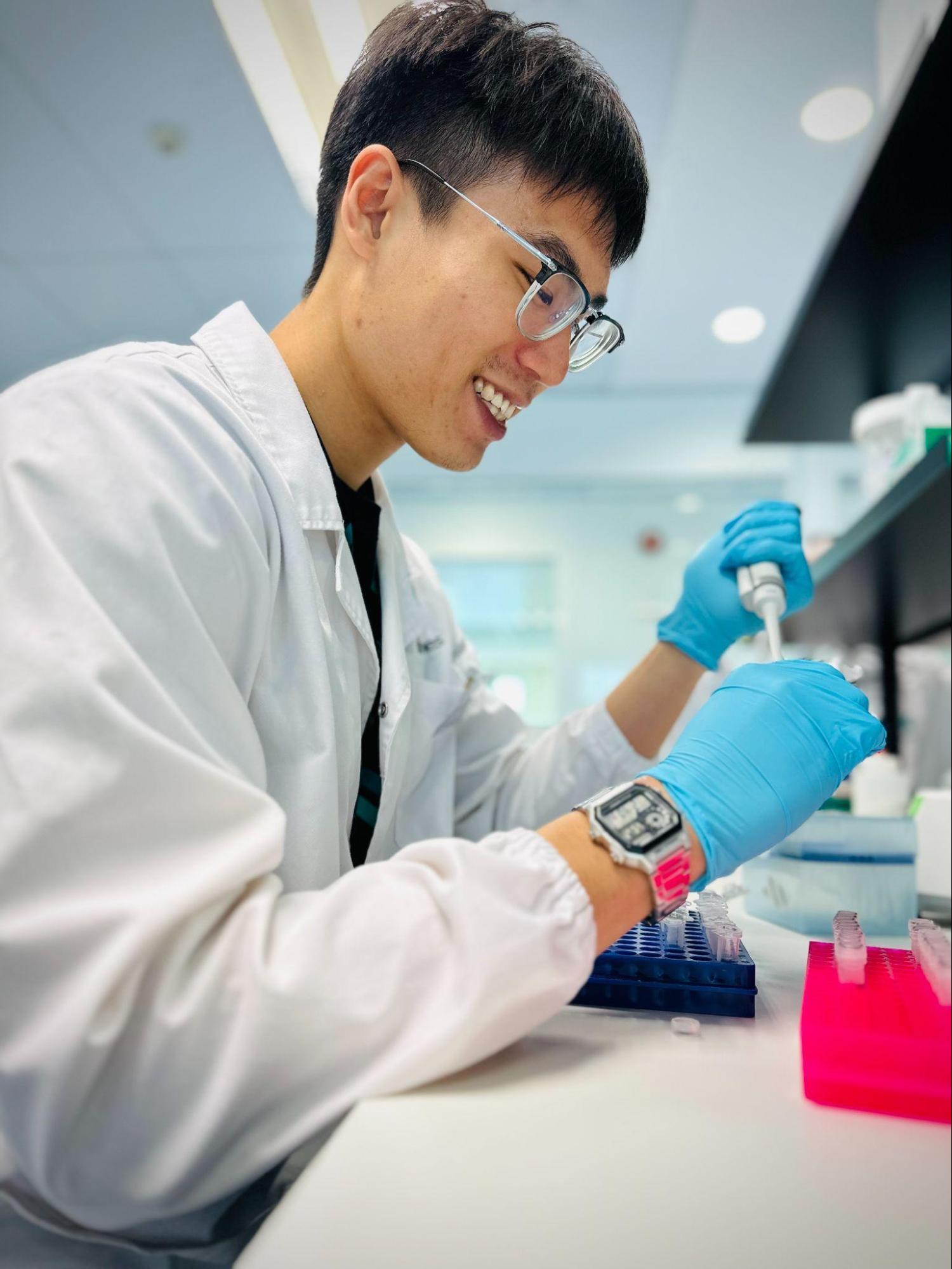With bubble tea shops at every corner, even in heartland areas, and new dessert cafés popping up all the time, it’s no wonder Singapore is waging a war on diabetes.
To combat this, the government has long advocated for healthier lifestyles, and more recently, announced measures to allow consumers to identify which drinks are lower in sugar and saturated fat.
But sugar can be found even in the drinks you least expect.
For one health-conscious Singaporean Jacky Tan, sugar is something he tries his best to abstain from despite not being able to resist the temptation of ice cream.
This health-conscious mindset was somewhat inculcated in him while growing up.
Tan’s father avoids sugar and sugary drinks as well, and he is also not a fan of artificial sweeteners.
As such, the elder Tan gets his coffee with less sugar, or kopi siu dai.
According to The Straits Times, however, a kopi siu dai still contains around 3.25 tablespoons of sugar - not exactly the healthiest option one might have expected.
“We actually underestimate how much sugar there is in our cup of coffee and tea,” Tan said.
Which is why an innovation by Singapore-based start-up Allozymes, where Tan works at, could be a game changer.
Allozymes deals with enzymes
Tan is a research assistant at Allozymes, a protein engineering company started in 2019 that works on enzymes.
A quick throwback to biology lessons in school: enzymes are proteins that help to speed up chemical reactions and are vital components of any living organism.
Enzymes are also used widely in the manufacturing process in the food, agricultural, cosmetic, and pharmaceutical industries to speed up reactions and increase yield.
Allozymes focuses on efficiently identifying and developing enzymes for industrial use — using its proprietary microfluidics technology, it optimises enzymes to improve their performance.
For example, the improved enzyme can be faster, have a higher yield or use lesser substrate and chemicals.
 Photo via Tan
Photo via Tan
Better sugar?
One of Allozymes’ major creations, which could revolutionise the F&B industry and the way we consume sugar, is a healthier and more sustainable sugar alternative.
The enzyme Allozymes is developing converts agricultural or organic waste such as sugarcane or corn into a healthier, fibre sugar ingredient that has 50 per cent less calories and also has a 50 per cent lower Glycemic Index (GI) compared to table sugar.
You might have seen low-GI bread and rice — this means that such foods cause a slower and smaller rise in blood sugar levels when consumed — but hearing of low-GI sugar is probably a first.
“It’s the idea that we’re doing more with less. We are taking a product that is not very useful, and then developing a product that makes sense,” Tan said.
Reducing carbon footprint
The process of producing sugar has its consequences on the environment.
According to a World Wide Fund for Nature (WWF) report, 60 to 70 per cent of sugar is produced from sugarcane, which is a crop known for its significant water consumption.
Sugarcane cropland also currently occupies around 13 million hectares of land globally.
The enzymes needed to create Allozymes’ sugar, on the other hand, can be made within the confines of a lab, without the need for additional land space — a precious resource in land-scarce Singapore.
Furthermore, the waste material would essentially be upcycled and given a new life, where typically it would be disposed of.
All this ensures that the production of Allozymes’ sugar alternative generates less emissions than the conventional method of producing sugar, which also means a much lower carbon footprint.
Supposedly tastes like regular sugar
It’s sometimes possible to discern the difference in taste between real sugar and artificial sweetener. Personally, I’m not a huge fan of Coke Zero, which contains artificial sweeteners — there’s a weird taste that I’m not fond of, compared to the classic Coke.
Would I love a low sugar option? Sure. But am I willing to compromise on the taste? Not so much.
But it seems that with Allozymes’ fibre-derived sugar alternative, I can have my cake sugar and eat drink it too.
The cherry on top of this pretty sweet invention is that it is supposed to taste and have similar food processing properties like regular sugar.
This means that you can't taste the difference between Allozymes’ sugar alternative and table sugar, but are reaping the benefits of healthier sugar.
Currently, Allozymes is preparing to get regulatory approval from local authorities, and is trialling the use of the sugar alternative in food products like bubble tea pearls and cookies.
With the support from Temasek Foundation, the company anticipates that by 2025, the fibre-derived sugar will be able to hit the markets, available for businesses to use in their F&B products.
“I don’t think convincing the consumer [about the sugar alternative] will be difficult,” Tan adds, remarking that consumers are “pretty savvy” now when it comes to such innovations.
“I think there is disdain for artificial sweeteners [as there is] the idea that there are no calories. It messes with your brain chemistry. It makes you think you’re eating something sweet. But [with Allozymes’ sugar alternative], you’re actually eating something sweet.”
Allozymes’ sugar alternative is thus something Tan can foresee his father trying out.
After all, despite how health-conscious Tan himself is, he concedes that a life without sugar “is not a life worth living”.
 Photo via Tan
Photo via Tan
You can find out more about Allozymes here.
This is a sponsored article by Temasek Foundation.
Top photo from Canva and Ashley Tan
If you like what you read, follow us on Facebook, Instagram, Twitter and Telegram to get the latest updates.

